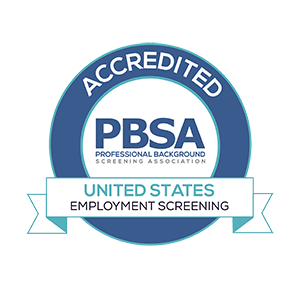Pre-employment screenings can save time and money by helping you identify the best candidates for your job openings. The results are improved hiring practices and reduced turnover.
However, it’s critical that you comply with applicable laws and regulations. You can do this by having pre-employment hiring procedures in place.
The Truth about Resume Lies
According to a recent infographic, 46 percent of job candidates admit to lying on their resume. Additionally, 3 percent have misdemeanor records and 7 percent have felony records.
Knowing the possibility that at least one of the job candidates you interview may be lying or have a criminal record, it is in the company’s best interest to conduct thorough and legal pre-employment screening.
That requires you to understand the laws that govern background checks and to have a pre-employment screening process in place to avoid inadvertently taking discriminatory actions.
Federal Laws Governing Pre-Employment Screening
Several federal laws govern your use of background information on employment decisions.
- Title VII of the Civil Rights Act of 1964 prohibits discrimination based on race, color, religion, sex, or national origin as well as using selection procedures that create “disparate treatment” or have a “disparate impact.”
- Title I of the Americans with Disabilities Act (ADA) prohibit you from discriminating against candidates based on their known or perceived disabilities.
- The Age Discrimination in Employment Act (ADEA) prohibits discrimination based on age (40 and over). Additionally, the ADEA prohibits disparate treatment discrimination.
- The Fair Credit Reporting Act (FCRA) requires you to receive written approval from job candidates before accessing any “consumer report.”
When you develop your pre-employment screening procedures, you must ensure that they do not violate these laws.
The Uniform Guidelines on Employee Selection Process, created by several federal government agencies, establishes uniform standards for using selection procedures in order to address adverse impact, validation, and recordkeeping.
Establishing Legal Pre-Employment Screening Procedures
To ensure your company doesn’t violate the law, be sure to:
- Analyze each job to determine required qualifications
- Determine the best method to screen for these qualifications
- Establish a policy, referencing compliance with state and federal laws
- Identify those positions that require screening methods
- Develop the procedures and process for screening candidates
When you’re ready to get assistance with your pre-employment hiringprocess, TruDiligence is there to offer full-service, FCRA-compliant background checks. For more information on our investigative, verification, and screening services, contact us today.


Leave a Reply
Want to join the discussion?Feel free to contribute!